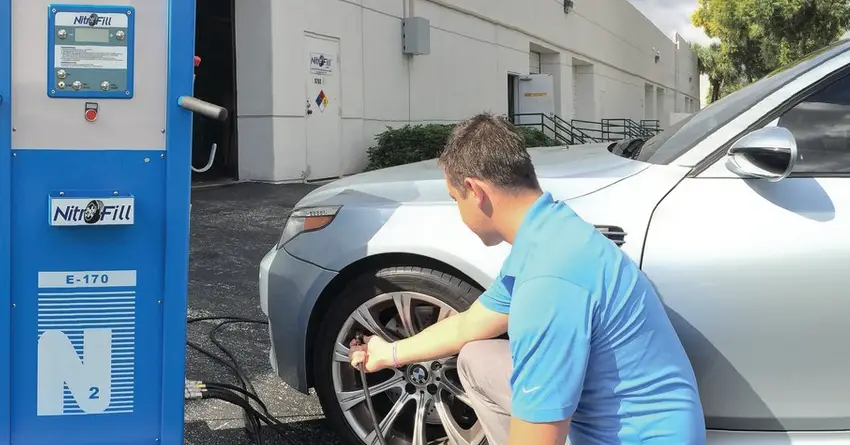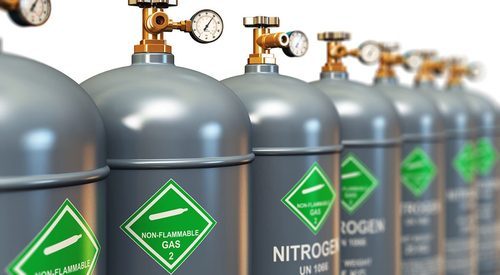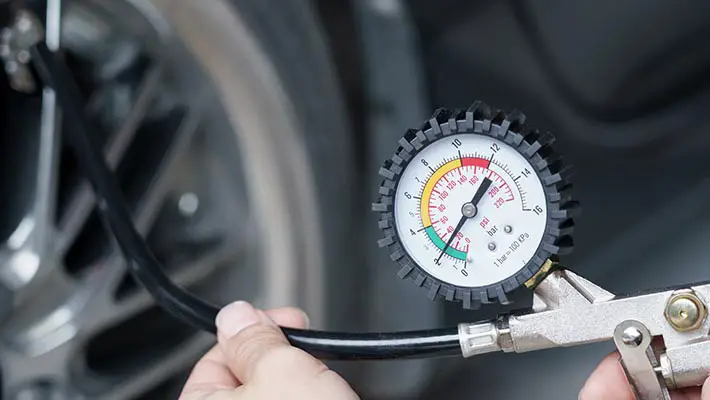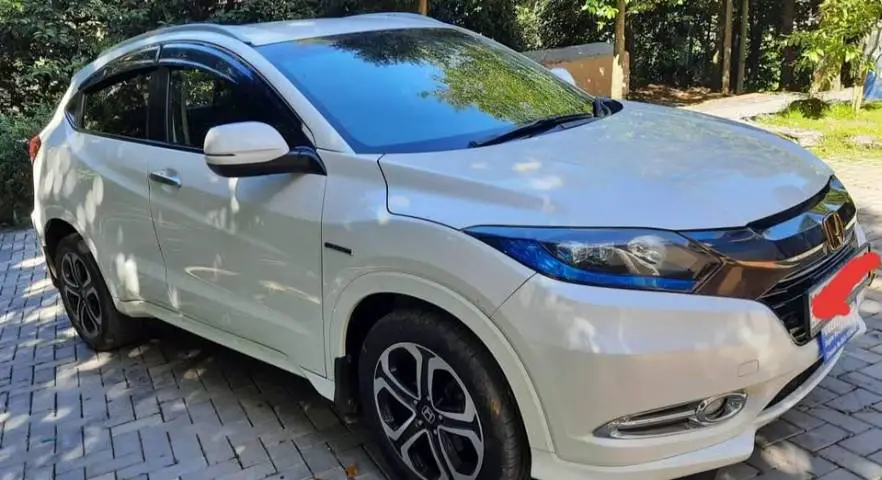Nitrogen vs Air: Which is Better for Tires?
If you are thinking about refilling the tires your first choice may be air. But do you know filling your tire with nitrogen is the better idea.

Nitrogen vs air, which is really better for your tires? Nitrogen tire inflation has been around since the 1950s and was developed to provide a safer driving experience. It's also considered an environmentally friendly option because it reduces moisture in the atmosphere. We'll cover how nitrogen can help you save money on fuel costs and keep your car running longer than with just air in its tires.
What is Nitrogen & What Are the Advantages of Nitrogen in Tires?

Nitrogen is the lightest element in group 15 of the periodic table and one of the most abundant element in the entire universe. Each Nitrogen atom covalently bonded with another Nitrogen atom to form Dinitrogen with formula N2 and it is the most abundant gas in earth’s atmosphere which is about 78%. This triple bond (N≡N) is extremely strong and second strongest bond in a diatomic molecule other than CO. Because of this, Nitrogen is less reactive in the atmosphere.
Nitrogen in tires is something that most people are not aware of. However, it can be extremely beneficial for you to use nitrogen in your vehicle's tires. The benefits include better fuel economy and increased tire life expectancy. Not only this but there may also be cost savings with using nitrogen over time - if the proper inflation pressures are used (which they will be if you use nitrogen).
Another great benefit of using nitrogen in tires is that since the air pressure will not fluctuate (due to changes in temperature) as it does with normal compressed air, your vehicle's tire life can be increased by up to 25%. The reason for this being because any time you have a change in pressure, there are more chances for internal damage.
Nitrogen is used in tires because it does not contain moisture. When you inflate your tire with compressed air, you are also including the atmospheric gases (which include water vapor) present at the time of inflation.
Over a period of time, this can even lead to corrosion and rust forming on your vehicle's wheels! So if you want to keep your tires in good shape over a long period of time, it is important that you use nitrogen.
Air-Filled Tires : What Are The Disadvantages ?

There are several disadvantages to using air-filled tires.
First, if the tire pressure is too high or low it can cause improper handling of the car and reduce fuel economy. Second, when changing a flat tire in an emergency situation you need to pump up the flat tire with air before putting on your spare tire. Also, air-filled tires have a short lifespan because the tire pressure fluctuates with temperature changes.
Another disadvantage to using air is that it can cause corrosion of metal parts in your car if there are leaks or punctures in the tire casing. Nitrogen has no adverse effects on metals so it doesn't corrode them as much as air does.
Checkout this amazing vehicle offers only for you...
For these reasons, it's best to use nitrogen-filled tires rather than those filled with compressed air. These benefits make it well worth the cost of having your car serviced with nitrogen-filled tires.
As stated above the advantages and disadvantages of nitrogen-filled tires are many. Nitrogen is great for cars, motorcycles, trucks, and other vehicles that need to travel long distances because it helps maintain tire pressure better than air does.
When you use nitrogen for your vehicle's tires, they will last longer before the rubber starts deteriorating due to oxidation (a process that causes the rubber in a tire to dry out). Air-filled tires also lose their efficiency over time as well; however, when you choose nitrogen instead of air there isn't any risk of punctures or leaks like with an air-filled tire. Read more about Nitrogen in Wikipedia >>
UP NEXT

WHITE, GREY, BLUE OR BLACK : WHAT DOES MY CAR'S COLORED EXHAUST SMOKE MEAN ?
Vehicles with engine problems may exhibit a variety of symptoms. It may appear in many different forms, such as noise, vibration, or colored exhaust. High exhaust emissions of any color indicate an engine problem Read more...

Read Before Buying a Used Car - Advantages, What to look for
Buying a used car is a huge investment, so it's important to know what you're doing before you make the purchase. There are many things that can go wrong with a used vehicle, but there are also some great ways to find out if it's worth taking the risk. In this blog post, we will cover some of those methods and give you some helpful hints on how to spot problems. Read more...




